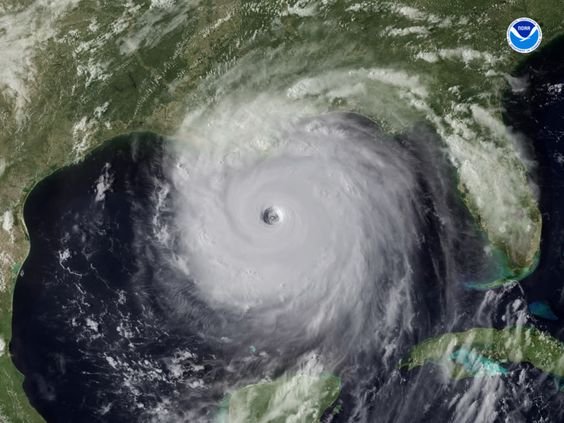
I’m picking up some rather interesting feelers concerning the pending economic impact from hurricane Katrina. None of my feelers is good news for the Gulf Coast, and I do believe there will be a negative national impact, despite what bu$hco is claiming.
Here in Jackson country alone, I’ve heard estimates that of the 132,000 families here prior to the storm 100,000 have homes (apartments, mobile homes, single family structures) that are severely damaged or uninhabitable. Along the Mississippi Gulf Coast, approximately 330,000 homes were destroyed to the point of being uninhabitable, with approximately 680,000 more homes suffering some type of storm damage. This totals about two thirds of all homes on the Mississippi coast.
Added to this is the damage to commercial properties, roads, railway tracks, and bridges. In Biloxi the casinos alone accounted for 17,000 jobs – and all the casinos are presently shut down. The Gulfport commercial seaport is still out-of-operation and cargo delivered prior to the storm is rotting in the warehouses.
The shipyards around Pascagoula are getting back in production, but still limping along surviving on insurance monies while they retool. The shipyard I work at took a 25 foot tidal surge, and saltwater damage is insidious. Roads and railway lines that business depends on are damaged and time estimates on repairing some bridges are 2 to 3 years.
The bulk of all property damage was caused by hurricane wind-induced storm surge, what the insurance folks are calling flooding and only paying claims against a flood insurance policy. But many locations that flooded were not considered “flood zones” (as my neighborhood was not) and the residents were not required to maintain flood insurance. So very many people did not carry flood insurance (as almost all the people living in my neighborhood did not). Now, many, many people have homes wrecked and no insurance coverage to help pay for reconstruction (I estimate two-thirds of my town alone was flooded).
But there will still be hundreds of thousands of insurance claims paid out from Katrina. Insurance companies are a major source of capital to banks and corporations. With this hit to insurance revenues, where does the capital come from? I also expect homeowner and flood insurance rates to dramatically increase as a result of this storm.
To repair a flooded home means replacing all electrical appliances, replacing insulation and sheet-rock (at least the lower 4 feet, all of it if the flood line was greater than 3 feet deep), carpeting and wood flooring, possibly replacing electrical wiring and fixtures, repainting and decorating, and replacing most or all of the furniture. But before any reconstruction can be done, the interior structure must be properly treated to kill mold and prevent future mold growth. All this work is expensive – do the numbers on how much this would cost you.
Without insurance money, people are left financing major home reconstruction out-of-pocket. They’re already carrying a mortgage and paying property taxes. They may have lost their job, or only able to work reduced hours / reduced pay.
Will a home that has once been flooded, even if professionally treated for mold (there are very few state-certified mold treatment firms, and very little guidance on how to do it “properly”) be appraised for sale price the same as a non-flooded home? Enough homes in a neighborhood with reduced appraisals will affect appraisals of the non-flooded homes.
Will a person unable to afford reconstruction be willing to pay their mortgage or property taxes? Given a choice between living in a tent in their driveway or walking away from a wrecked home, what will people do? A home is the major source of equity for many people – what happens if their equity is suddenly reduced below what their mortgage is?
What happens to a bank when large numbers of customers default on their mortgages?
With lower property appraisals, what happens to the town’s tax base? What happens to a town when large numbers of residents abandon their property?
What happens to towns that lose their tax base? Where do they get the money to finance schools and public services? The Mississippi Gulf Coast encompasses most of the non-farm industries for the entire state. The loss of Mississippi Coast tax revenue means a significant state-wide loss of tax revenue. I’ve heard that the Casino industry alone accounted for one billion dollars in state tax revenue that is lost for at least a year.
Gov Barbour is already expressing concern. He just eliminated 25,000 people from Medicaid rolls and now the numbers of state residents who need health care services, but can’t afford it themselves, is skyrocketing. State school funding was already short and people were demanding a major funding increase.
Home construction has been the growth engine driving our economy for the past several years. Now consider the multiple impacts of increasing prices of construction materials due to increased demand on top of increased energy prices. Mortgage rates increase as a result of more expensive capital and higher bank losses? Increased homeowner insurance rates will increase the price of home mortgages. The southeast has been one of the fastest-growing regions for new home construction.
The economic impact of hurricane Katrina is just now starting to be assessed, and I do not think any of it is good news for our country.
Editor’s Note: This was cross-published at Daily Kos as Katrina Financial Impact on Friday Sep 30, 2005. This was a combination of research on published news sources and my own first-hand research.
Related Posts
A Bittersweet Homecoming : Returning to my former hometown of Gauter, two years after leaving.
Day Fifty-Four Pandemic Shut-At-Home : Writing about another disaster I’ve lived through – a pandemic.
Let Him Die – Really? : A post about lack of compassion for fellow Americans.